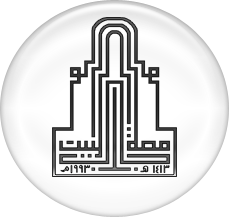| DC Field | Value | Language |
|---|
| dc.contributor.author | ريم المعايطة | - |
| dc.date.accessioned | 2017-12-07T14:07:40Z | - |
| dc.date.available | 2017-12-07T14:07:40Z | - |
| dc.date.issued | 2015-06-17 | - |
| dc.identifier.uri | http://hdl.handle.net/123456789/1307 | - |
| dc.description.abstract | الملخص
يعدّ التّطوّر اللغويّ من أبرز قضايا العصر الحديث اللغويّة، فقد كُتبت فيه كتب ودراسات وبحوث، وبرزت فيها آراء تفسّر هذا التّطوّر أو تدعو إليه. واللغة العربيّة لغة متطوّرة في ألفاظها وتراكيبها، ومواكبة لكلّ حديث، فقد مرّ عليها مئات السّنين وهي تعبّر عن قضايا كلّ عصر مستوعبة ما فيه من علوم ومعارف.
ويهدف هذا البحث إلى اقتراح ضوابط نقيس بها تطوّر الألفاظ، وهو يدعو إلى أن ننظر في رحلة اللفظة من العصر الجاهليّ حتّى يومنا هذا، ونتتبّع التّطوّر الّذي جرى عليها، مستفيدين من المعاجم والمصادر التّراثيّة، وهذا ما اقترحه المستشرق الألمانيّ.
ونضيف إلى مقترح فيشر أنّنا إذا رأينا تغيّرًا دلاليًّا على لفظة ما، وتغيّر معناها على غير ما استعمله العرب وفق المعاجم والمصادر، ولم تكن هذه اللفظة من الأضداد ولا المشترك اللفظيّ، ولم تخرج من الحقيقة إلى المجاز، نُظِر فإن كان بين الاستعمال الجديد والاستعمال القديم صلة أو علاقة، قُبِل وأخذ به، وإلا فهو مرفوض، والسّبب أنّ أوصال اللغة ستتقطّع بين قديمها وحديثها، كما أنّ علينا في حالة الرّفض أن نقترح لفظة بديلة في المعاجم لنحييها.
كلمات مفتاحيّة: التّطوّر، اللغة، المعاجم.
Abstract
Language development is considered one of the most important language issues in modern time. Abundance of research has been published on this issue and many views have been presented explaining or calling for language development. Arabic is a developing language in terms of its vocabulary and structure and is a language that keeps up with modern developments. For hundreds of years, it has absorbed and incorporated the science and knowledge of every era.
This paper offers a new proposal to measure vocabulary development in Arabic. This proposal calls for tracing a vocabulary item from the pre-Islamic era, or Jahiliyya, to the present time in order to explore the development it has undergone, making use of classical dictionaries and sources. This has already been proposed by the German orientalist August Fischer.
To Fischer’s proposal we add the view that if a lexical item undergoes some semantic change, whereby its meaning changes in a way different from the usage found in classical dictionaries and sources, and if this word is neither an antonym nor a homonym, nor has it acquired a metaphorical meaning, the new and old usage are examined. If they have any link or relationship, the word is accepted and adopted. Otherwise, it is rejected. The basis of this view is that the links between the classical and modern Arabic have been disconnected. In case of a rejected word, an alternative lexical item from the dictionary should be suggested in order to revive it.
Keywords: Language development; Language; Dictionaries. | en_US |
| dc.subject | Keywords: Language development; Language; Dictionaries. | en_US |
| dc.title | ضوابط مقترحة لتغيّر دلالة الألفاظ في اللغة العربيّة | en_US |
| dc.type | Other | en_US |
| Appears in Collections: | المجلد (22)، العدد(1)، 2016م
|

